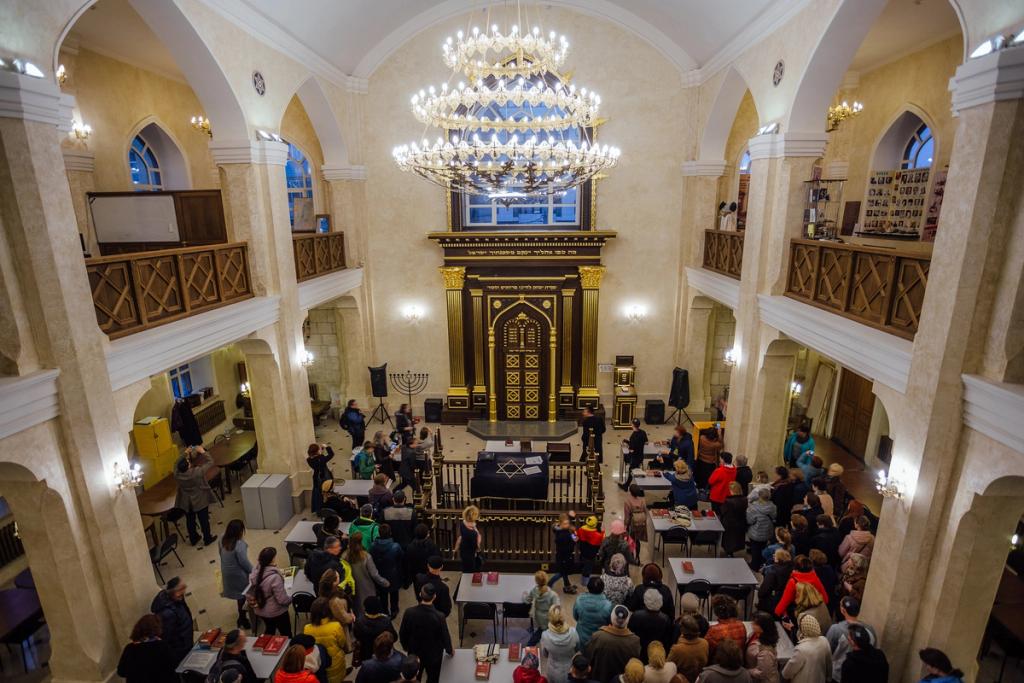
Company Blog
Lessons Learned: How Synagogues Can Strengthen Security After Recent Attacks
In recent years, houses of worship have unfortunately become targets of violence, shaking faith communities to their core. These tragic events, including attacks on synagogues, reveal serious vulnerabilities and highlight the pressing need for smarter, more proactive security measures. By learning from past incidents, houses of worship can take concrete steps to better protect their congregations and ensure peace of mind for all who enter their doors.
1. Investing in Comprehensive Security Training
When tragedy strikes, response time and preparedness are critical. In 2022, during the hostage situation at Congregation Beth Israel in Colleyville, Texas, Rabbi Charlie Cytron-Walker credited the synagogue's security training for enabling him and his congregation to respond quickly and safely. Rabbi Cytron-Walker said the training helped him recognize a threat early, which allowed him to escape with the hostages and avoid any casualties. The synagogue’s security team, which had undergone regular drills, was able to remain calm and respond decisively.
This incident underscores the importance of regular, realistic security training for congregational leaders, staff, and volunteers. It's essential to prepare everyone—whether it’s knowing how to evacuate, how to identify suspicious activity, or how to respond to an active shooter scenario. How synagogues can improve safety starts with consistent, high-quality training programs that keep teams ready to act in high-stress situations.
2. Establishing Clear Emergency Protocols
Clear, well-defined emergency protocols are crucial for ensuring a rapid, coordinated response in times of crisis. In Melbourne, Australia, the East Melbourne Hebrew Congregation faced an arson attack in 2025. Though the situation was dangerous, the synagogue’s adherence to emergency security protocols played a pivotal role in preventing serious injuries or loss of life.
Having emergency evacuation plans, designating safe rooms, and maintaining a clear chain of command for responses can make all the difference. Synagogues should ensure that their emergency protocols are well communicated and practiced regularly by all staff, volunteers, and even congregants, who may need to assist in a critical moment. These measures are vital parts of any security strategies for synagogues looking to improve readiness.
3. Upgrading Physical Security Infrastructure
Physical security infrastructure, including surveillance cameras, access control systems, and secure entry points, is another vital area where religious institutions can strengthen their defenses. The horrific 2018 Pittsburgh synagogue shooting, which resulted in 11 deaths, highlighted the gaps in security at many places of worship. While many religious institutions have implemented basic security measures, more robust security systems for synagogues are now necessary.
Churches and synagogues should consider upgrading their physical security systems by adding cameras, installing secure access points, and employing security personnel during high-attendance services or events. Enhanced physical security can also provide valuable evidence in the event of an attack and deter potential threats from entering the premises.
4. Fostering Community Vigilance
Community engagement and vigilance play an important role in strengthening security. In Georgetown, an attempted attack was thwarted in part due to the vigilance of trained volunteers from the Community Security Service (CSS). These individuals, trained to recognize suspicious behavior and respond appropriately, were able to alert authorities and take swift action, preventing a potentially disastrous situation.
Faith communities should foster a culture of vigilance by training volunteers to be the "eyes and ears" of their security team. Encouraging members of the congregation to report unusual behavior, remain alert, and be proactive in maintaining a safe environment can significantly enhance security efforts. Many religious institutions are already working with organizations like CSS to train volunteers and equip them with the tools they need to act quickly and effectively.
5. Strengthening Collaboration with Law Enforcement
Collaboration with local law enforcement agencies is a critical component of any comprehensive security strategy. In Melbourne, following a series of antisemitic attacks, the state government formed an anti-hate taskforce to better address the rising threat to Jewish communities. This taskforce works closely with local synagogues, providing expert advice, assistance with risk assessments, and facilitating regular communication between law enforcement and community leaders.
Building strong relationships with local police can help religious institutions access resources, stay informed about local threats, and develop tailored security strategies for synagogues. Law enforcement can also assist in conducting security audits, helping places of worship to identify vulnerabilities and areas for improvement.
Conclusion: Proactive Security Measures Save Lives
In response to the increasing number of attacks on synagogues, it’s clear that faith communities must take proactive measures to safeguard their congregations. Smarter security technology, such as surveillance systems, panic buttons, and communication tools, can also make a significant difference. A well-rounded, multi-layered approach to how synagogues can improve safety will not only provide peace of mind but will ultimately protect those who gather for worship.